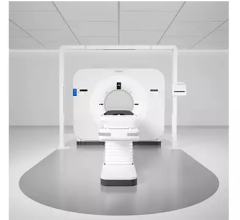
Blue Earth Therapeutics Ltd, recently announced further positive developments for its novel investigational radioligand therapies. Enrollment of patients in the Phase 1 trial of Lutetium (177Lu) rhPSMA-10.1 Injection was completed in July.
Early data from the trial suggests an encouraging safety profile. Radiation dosimetry performed for up to three cycles showed delivery of high tumor absorbed radiation doses relative to the dose delivered to the key normal organs, such as kidney and salivary glands. While final analysis is ongoing, the ratio between radiation dose to tumors versus dose to the kidneys and salivary glands was compelling versus published data1 for first generation radioligand therapies.
This data opens the way for the Phase 2 portion of the Phase 1/2 trial to start later this year. The company has shared the intended Phase 2 study design with regulators and, subject to trial safety committee agreement, will test innovative dosing regimens in the Phase 2 study. Based on the advantageous results for absolute tumor and normal organ uptake seen in Phase 1, the Phase 2 study will explore the following concepts:
- Administration of a significantly higher overall injected radioactivity in comparison to recent Phase 3 clinical trials of other agents.
- Front loading of administered radioactivity.
- Extending duration of administration of radioactivity to provide longer time on treatment.
In combination with the positive radiation dosimetry results seen in Phase 1 for Lutetium (177Lu) rhPSMA-10.1 Injection, these factors should further support the ultimate goal of delivering better outcomes for patients.
"We are excited by the new data which support our best-in-class thesis and to have a clear path to move from Phase 1 to Phase 2 in the development of our lead therapy," said David Gauden, CEO. "We remain on track for the opening of Phase 2 in the next few months. We also expect to see the full Phase 1 results presented at a scientific meeting in 2025."
"The available science increasingly highlights that fixed dosing at fixed intervals is unlikely to be optimal. Front loading radioactivity and extending the time on therapy may lengthen time to disease progression. We will explore these concepts in Phase 2. Our intention is to optimize dosing now, with the aim of achieving the best possible outcomes for patients in a future pivotal trial," commented Dr Daniel Stevens, Head of Clinical Development and Medical at Blue Earth Therapeutics. "We think that adapting dosing based on data from the individual patient will be important for improved results."
The Phase 2 clinical trial of Lutetium (177Lu) rhPSMA-10.1 Injection is planned to open at approximately 15 sites across the US and Europe and enroll approximately 70 patients.
For more information, please visit: https://www.blueearththerapeutics.com.
1 Ells, Zachary, et al. "Dosimetry of [177Lu] Lu-PSMA-Targeted Radiopharmaceutical Therapies in Patients with Prostate Cancer: A Comprehensive Systematic Review and Meta analysis." Journal of Nuclear Medicine (2024).


 April 21, 2025
April 21, 2025 








